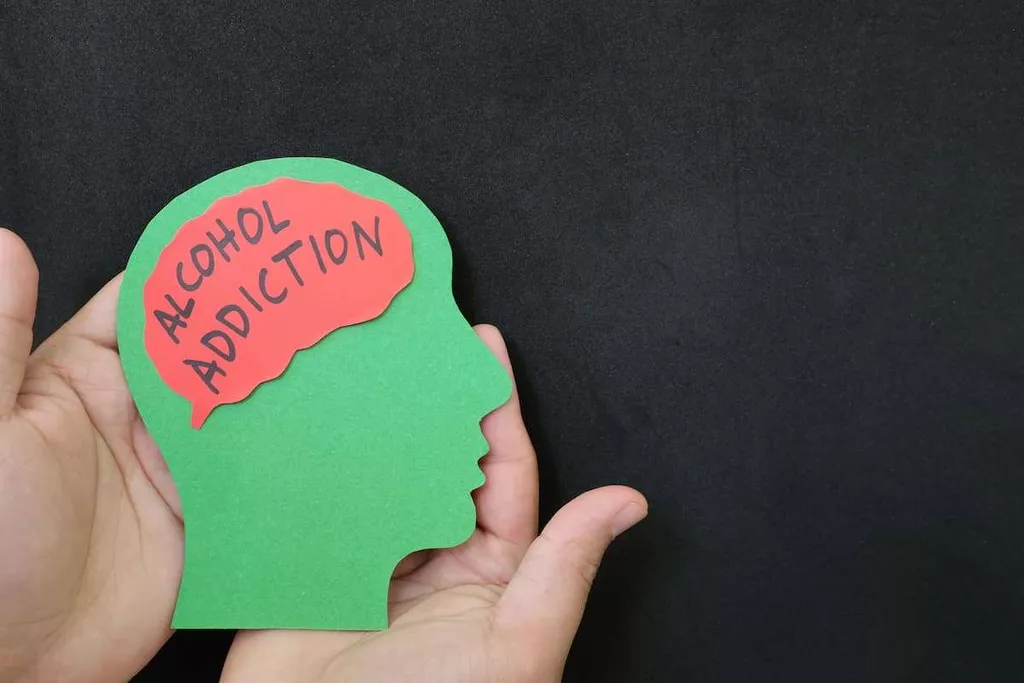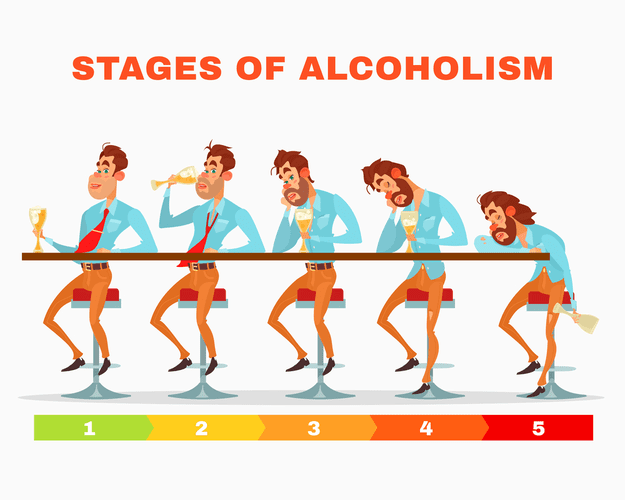Contents
Many substances — such as drugs and carbon monoxide — are poisonous only in higher concentrations or dosages. Certain types of cleaners are only harmful if ingested, while others also emit toxic gases/fumes. Children are particularly sensitive to even small amounts of certain drugs and chemicals. Be prepared to give paramedics as much detail as you can about how much alcohol the person has consumed and what type of alcohol it was. Avoid activities or drinking games that may pressure you to binge drink.
It may help to place a refrigerator magnet or a visible sticker in your home with the poison control number. Poison control centers are excellent resources for poisoning information and, in many situations, may advise that in-home observation is all that’s needed. Alcohol poisoning happens when you drink too much alcohol too fast.

Admissions staff are available to answer questions. AspenRidge is a top-rated treatment facility in the state of Colorado with multiple locations. They offer outpatient services, in-patient treatment options, partial hospitalization options, and extended recovery monitoring. Anyone who drinks alcohol can experience a hangover, but some people are more susceptible to hangovers than others are. A genetic variation that affects the way alcohol is metabolized may make some people flush, sweat or become ill after drinking even a small amount of alcohol.
When it’s an emergency
If there is any question whether you or someone you know has overdosed on alcohol, get help. Being drunk refers to the state of being impaired by alcohol. Alcohol poisoning, on the other hand, is a serious and potentially life-threatening condition that occurs when a person consumes a large amount of alcohol in a short period of time.
It can cause serious complications, like liver and heart failure, which can be fatal. Below we’ll explore some of the factors that can contribute to alcohol poisoning and how long you’ll feel the effects. A wide range of factors determines how the body responds to chronic 11 things people don’t tell you about growing up with an alcoholic parent heavy drinking, but this activity can result in significant harm. When somebody consumes an alcoholic drink, their liver has to filter out the alcohol, a toxin, from their blood. If a person suspects someone has alcohol poisoning they should call an ambulance.
- Not sleeping well or long enough after drinking.
- The two conditions, together called Wernicke-Korsakoff syndrome, happen in people who are severely deficient in thiamine (vitamin B-1).
- If you choose to drink alcohol, do so in moderation.
- A 2018 study that followed 9,087 participants for 23 years found that people who did not drink alcohol in midlife were more likely to develop dementia.
- If a person suspects someone has alcohol poisoning they should call an ambulance.
- Yes, alcohol poisoning can cause blue-tinged skin, a condition known as cyanosis, which occurs when there is not enough oxygen in the blood.
Statistics show men between the ages of 35 and 64 are typically the ones who die from it. The majority of people who die from alcohol poisoning are white. Unlike food, which can take hours to digest, alcohol is absorbed quickly by your body — long before most other nutrients. And it takes a lot more time for your moderate, heavy, binge body to get rid of the alcohol you’ve consumed. Other forms of alcohol — including isopropyl alcohol and methanol or ethylene glycol — can cause other types of toxic poisoning that require emergency treatment. If the person must lie down, make sure to turn his or her head to the side — this helps prevent choking.
More health news + info
While both conditions involve excessive alcohol consumption, the symptoms and consequences of alcohol poisoning are much more severe. Medical News Today has strict sourcing guidelines and draws only from peer-reviewed studies, academic research institutions, and medical journals and associations. We link primary sources — including studies, scientific references, and statistics — within each article and also list them in the resources section at the bottom of our articles. You can learn more about how we ensure our content is accurate and current by reading our editorial policy. The treatment for alcohol poisoning typically involves supportive care, such as providing fluids and monitoring vital signs. In some cases, medications may be used to control seizures or to prevent aspiration.

Ethyl alcohol poisoning generally results from drinking too many alcoholic beverages, especially in a short period of time. It’s not necessary to have all the above signs or symptoms before you seek medical help. A person with alcohol poisoning who is unconscious or can’t be awakened is at risk of dying.
What Should You Do if You Notice Symptoms?
There is likely to be even more alcohol in the person’s stomach yet to be processed that will further increase alcohol levels in the bloodstream. When the liver is not able to filter this poison quickly enough, a person can develop signs of alcohol poisoning or alcohol overdose. An overdose of alcohol affects the brain’s ability to sustain basic life functions. Prompt treatment of an alcohol overdose can prevent life-threatening health problems. However, severe alcohol overdose may cause seizures, resulting in brain damage if oxygen to the brain is cut off.
If you experience an overdose, your doctor will ask you about your drinking habits and health history. Your doctor may also perform additional tests, such as blood tests and urine tests. If you suspect an alcohol overdose and the person is unconscious, do not leave them alone. You don’t need to have all of the symptoms listed above to have an alcohol overdose.
Despite various over-the-counter pills and tablets that claim to prevent hangovers, the only guaranteed way to prevent a hangover is to avoid alcohol. Darker colored drinks often contain a high volume of more about alcohol addiction and abuse congeners and may be more likely to produce a hangover. Using other drugs, such as nicotine, along with alcohol. Smoking combined with drinking appears to increase the likelihood of next-day misery.
Alcohol increases the production of stomach acid and delays stomach emptying. Any of these factors can cause abdominal pain, nausea or vomiting. Try to eat a diet rich in fresh produce, whole grains, and lean protein.
The faster someone drinks, the higher the BAC becomes. Rapid drinking can bring BAC so high that mental and physical functions are negatively affected. If BAC is high enough, it can impair physical functions such as breathing and the gag reflex (that prevents people from choking. If you combine alcohol and drugs, you may not feel the effects of the alcohol. This may cause you to drink more, increasing your risk for an alcohol overdose. Many people consume alcohol because it has a relaxing effect, and drinking can be a healthy social experience.

If you suspect someone has alcohol poisoning, call for emergency medical help right away. Common psychological effects of drinking alcohol include trouble concentrating, mood changes, and depression. If a pregnant woman cannot abstain, she should aim to reduce her alcohol consumption as much as possible.
Wernicke-Korsakoff syndrome
If you’re out drinking, try to stick to one drink every hour. Drink a glass of water after every couple of drinks. While there is no absolute cure for a hangover, many methods can help relieve symptoms. This article looks at the causes, treatments, and tips. Alcohol poisoning kills six people in the U.S. every day.
Excessive alcohol consumption can cause fat to build up in your liver. This can lead to inflammation and an increase in scar tissue, which can seriously impact your liver’s ability to function as it should. Some medications and supplements can stress your liver. Examples include acetaminophen , statins, and ephedra.
– Many Americans consume alcohol every day or drink too much in general. And because few people understand the limitations of alcohol tolerance in the body, poisoning can occur rapidly and with little warning. Taking the chance of not seeking immediate treatment will put your life or theirs in danger. Immediate intervention will give the doctors and nurses time to provide life-saving treatment that can prevent worse damage and help you to survive. With medical intervention, the chances of serious long-term psychological and physical consequences like brain damage or death are reduced.
In these cases, the best strategy is to avoid alcohol altogether. People with a history of alcohol misuse may wish to speak to their doctor about a medical detox. Moderate consumption of alcohol may cause a depressed mood, loss of inhibition, and sleepiness. Have somebody gather pill bottles, packages or containers with labels, and any other information about the poison to send along with the ambulance team. Get the person into fresh air as soon as possible.
Having obesity can increase your risk of alcohol-related liver disease. If you’re overweight or obese, work with your doctor to develop a weight loss plan that’s right for you. Severe alcoholic hepatitis can come on suddenly, such as after binge drinking, and can be life threatening. Alcohol is almost always consumed as a liquid, so it is through digestion in the stomach and intestines that it enters the bloodstream and reaches the brain.
People with DT may experience seizures, dangerous changes in blood pressure, and excessive vomiting and diarrhea, which can result in nutritional deficiencies. Fetal alcohol spectrum disorders, which people usually refer to as fetal alcohol syndrome, happen when a developing baby gets exposure to alcohol during gestation. Fetal alcohol syndrome affects many aspects of functioning, and it can cause brain damage. The two conditions, together called Wernicke-Korsakoff syndrome, happen in people who are severely deficient in thiamine (vitamin B-1).
